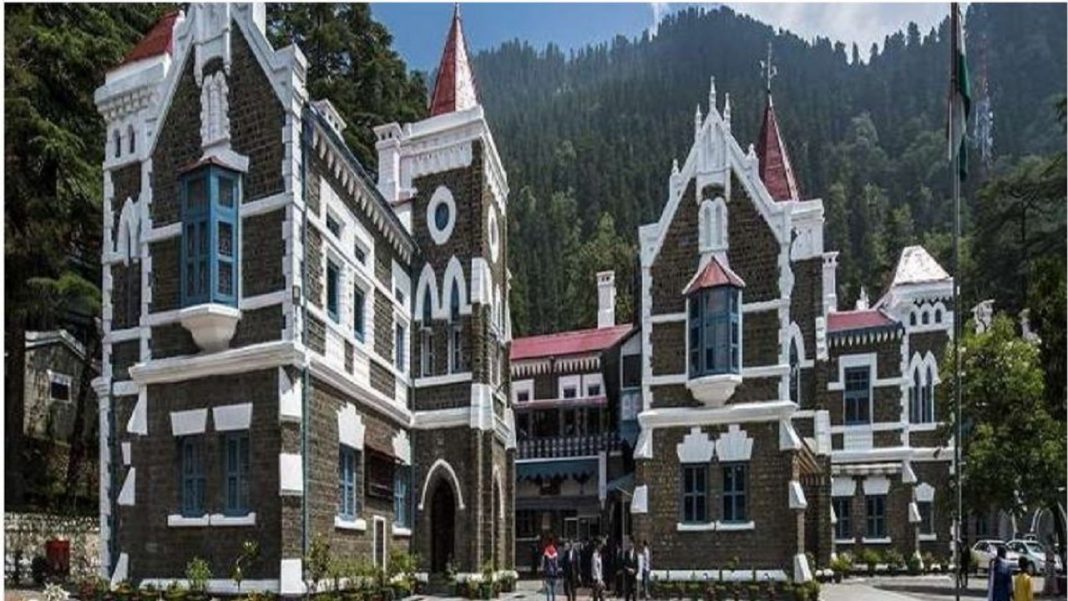The Uttarakhand High Court has pulled up the state government for not challenging the acquittal of accused by a lower court in the murder case of Kotdwar Advocate Sushil Raghuvanshi.
The Division Bench of Justice Vipin Sanghi and Justice Pankaj Purohit, while hearing an appeal against the acquittal filed by the wife of deceased Kotdwar Advocate Sushil Raghuvanshi, noted that prima facie there was enough material for the state government to file appeal against the trial court verdict.
The High Court expressed its surprise to note that on July 12, the State Counsel was asked to get instructions as to whether the State intended to file an appeal against the lower court and on the very same day, the proposal for filing appeal submitted by the District Magistrate, Pauri Garhwal was turned down, which was pending with the Law Department since May 11, 2023.
The Registry was directed to call for comments from the Joint Secretary (Law), Government of Uttarakhand and the matter was adjourned to September 14, 2023. The same day, the Joint Secretary (Law) submitted his report, which was found unsatisfactory by the High Court.
The report revealed that the Principal Secretary (Law) was the final authority to take a decision regarding the filing of appeal. Consequently, the Court directed the Registry to call for an explanation from the Principal Secretary (Law) and the matter was adjourned to October 4, 2023.
Pursuant to order of the Court, the Principal Secretary (Law) submitted an explanation through the Deputy Registrar (Judicial) vide letter dated September 21, 2023.
The Principal Secretary (Law) in his explanation mentioned that only in cases where there was difference of opinion between the Joint Secretary and the Additional Secretary, he could go with the opinion of either of the two officers.
The letter stated that the Principal Law Secretary being the seniormost officer in the Law department, facilitated the process of request on the opinion rendered by the officers through whom the file reached the Principal Law Secretary. In the Law Department, all files of various departments were routed through the Principal Law Secretary.
It was only in cases where there was difference of opinion between the Joint Law Secretary opinion and the Additional Law Secretary, the Principal Law Secretary could concur with the opinion of either of the officers on particular request and that opinion of the Principal Law Secretary became final, it added.
The High Court, while admonishing the State government, said that in government offices, especially in Secretariat, a paper under consideration was examined at different levels and each officer gave hand written observations on the office note and their notings indicated their thought process. These notes gave an idea of the inputs on the basis of which decisions were taken.
It said although officers at different levels may express divergent views on a given subject, however, final call in the matter was always taken by the Secretary/Principal Secretary of the concerned Ministry/Department, who formed his opinion based on the views expressed by his subordinate officers.
This practice unfortunately, did not appear to have been followed in the Law Department. The reply indicated that either the Principal Secretary (Law) was not able to take independent decisions or he avoided responsibility of taking decisions, noted the Bench.
The High Court observed that in the public interest, appeals against judgements/orders passed by Courts, both civil and criminal, should be filed in appropriate cases and unnecessary appeals should not be filed in cases where it would be a useless exercise.
Noting that no appeal could be filed on behalf of the state without permission of the Law Department, the High Court observed that the Law Department had to perform an important public function.
It said the faith of common people in the system eroded when permission for filing an appeal was denied in appropriate cases. Similarly, permission for filing an appeal, when granted without application of mind, resulted in clogging of superior courts.
A judicious approach has to be adopted by the Law Department while deciding on whether to grant permission for filing appeal in a given case, and for discharging this important public function, Judicial Officers were posted in the Law Department, who were expected to scrutinise the record/evidence in order to form an opinion as to whether a given case was fit for filing appeal or not.
The High Court said it was ‘aghast’ to find that proposals for appeal, received by the Law Department, were considered by junior officers, having little or no experience of dealing with matters of public importance, and the highest officer in the department simply concurred with the view expressed by his junior officers.
It said this was unbecoming of a Judicial Officer of the rank of senior Principal District and Sessions Judge, posted as Principal Secretary (Law).
It further expressed its displeasure over the stand taken by the Principal Secretary (Law) that the District Government Counsel (Criminal) alone was responsible for not indicating the grounds on which the acquittal order was to be challenged, as it was for the Judicial Officers manning Law Department to find out the infirmity, if any, in the judgement against which the appeal was proposed and the possible grounds on which the appeal could be filed.
The Bench said it disapproved of the manner in which the proposal for filing appeal, submitted by the District Magistrate, Pauri Garhwal, was dealt with by the Principal Secretary (Law).
Warning the Principal secretary (Law) to remain ‘careful in future,’ the High Court listed the matter for further hearing on December 18.
display_pdf-2023-10-15T093446.571

